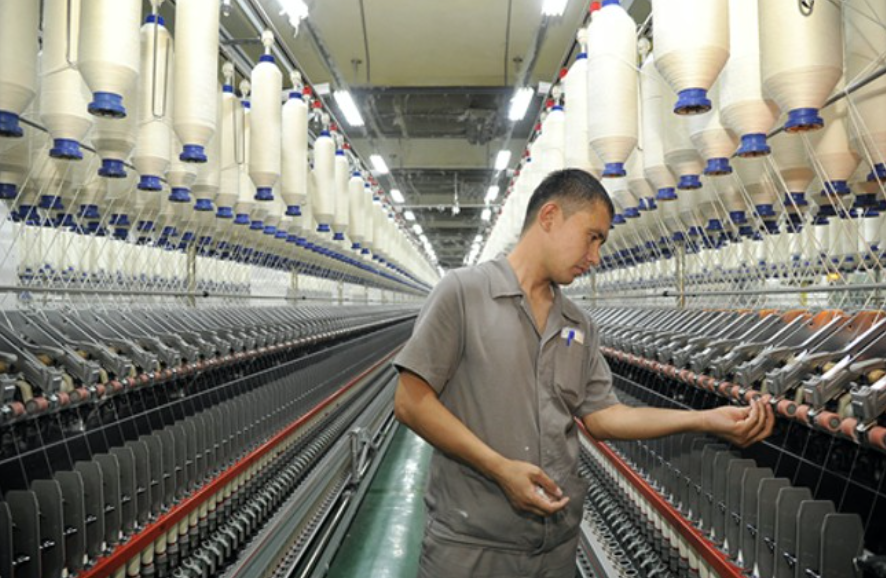Training of laboratory personnel to boost Uzbekistan’s technical expertise in measurement standards and practice
29.10.2021 2597To strengthen technical expertise of Uzbekistan’s laboratory personnel, a three-day training workshop was organized by the International Trade Centre (ITC) under the European Union (EU) funded project ‘Facilitating the process of Uzbekistan's accession to the WTO’, for which ITC is the implementing partner. The workshop took place from 27 to 29 September 2021 and follows on international standards-oriented training that took place in June.
This round of training sought to expand understanding about basic measurement principles and practice, including calibration, traceability, uncertainty calculation, repeatability and reproducibility as well as quality system documentation, environmental controls, equipment handling and the use of external laboratories and purchasing specifications.
Accurate measurement is a necessary underpinning for production, research and development and trade. The International System of Units (SI), adopted by the General Conference of Weights and Measures (CGPM), serves as the basis for national regulations concerning legal units of measurement and to promote global comparability of measurements. Metrology is the common science of units established to define units of measurement and realize them in practice. It also introduced traceability that link measurements made back to reference standards (SI) , in accordance with standard ISO 17025 of the International Organization for Standardization (ISO). Measurement systems comprise laboratories, calibration facilities and accreditation agents that maintain the measurement infrastructure of a country. Base units (including length, mass, time, electric current among the seven) are defined by the International System of Units (SI).
Traceability allows for the comparison of measurements – regardless of when it was made or where – and is usually obtained by calibration, which establishes a relationship between a measurement instrument and a standard through an operation that establishes a relation between the measurement standard with a known measurement uncertainty and the device that is being evaluated.
The key motivations for calibration are to provide traceability, determine accuracy, establish reliability and to guarantee that the device, or the standard, is consistent with other measurements. Measurement traceability operates on a pyramid, which is determined by international reference standards maintained according to scientific principles by the International Organization for Legal Metrology (OIML), through national metrology institutions that calibrate primary standards which can be traced back by an “unbroken chain of comparisons” to the international standard.

Measurement uncertainty expresses the magnitude of doubt related to the measurement result and deploys two quantities to quantify the uncertainty – namely, the range (i.e. the value in the units of the measured quantity) and the confidence level, which indicates the level of certainty that the ‘real’ value is included within the range.
Why is calibration to a standard that is traceable important? Traceability is a guarantor for the accuracy of measuring equipment both to manufacturers and customers, or consumers, of processes and/or products. It provides credibility for producers and corroborates the precision of equipment and measurements to customers, thereby guaranteeing that specifications have been met. As such, the compliance of national measurement systems with internationally standardized measurement systems is naturally of great importance for countries that trade internationally.
The training also covered the ground of the requirements for proficiency testing in conformity assessment – under ISO/IEC 17043 – which is the evaluation of participant performance against pre-established criteria by means of interlaboratory comparisons. The certification of products, processes or services plays an important role in providing impartial confirmation that specified requirements had been fulfilled.
The World Trade Organization’s (WTO’s) Agreement on Technical Barriers to Trade stipulates that conformity assurance when required, be done in a transparent way that is not discriminatory. It also sets forth that conformity assessment be informed by the relevant guides and recommendations issued by international standardizing bodies to aid harmonization. As such, Uzbekistan’s bid to accede to the WTO is supported by the training.
Participants in the workshop, which took place online, included technicians of Uzstandard Agency, the Uzbek National Institute of Metrology (UZNIM), the State Unitary Enterprise (SUE) Centre for the Provision of Services in the Agro-Industrial Sector, the SUE Centre of Expertize and Standardization of Medicines, Medical Devices and Medical Equipment’, the Sanitary-Epidemiological Welfare and Public Health Service (Sanepidservice), ‘Quality Control Lab’ LLC, SUE ‘UZTEST’, the Agency for Technical Regulation, ‘Texnopark’ LLC, the SUE ‘State Eco Certificate’, the SUE ‘Center for Certification of Tourism Services’, the State Committee on Ecology & Environment Protection, Tashkent State Technical University and Tashkent Medical Academy.

